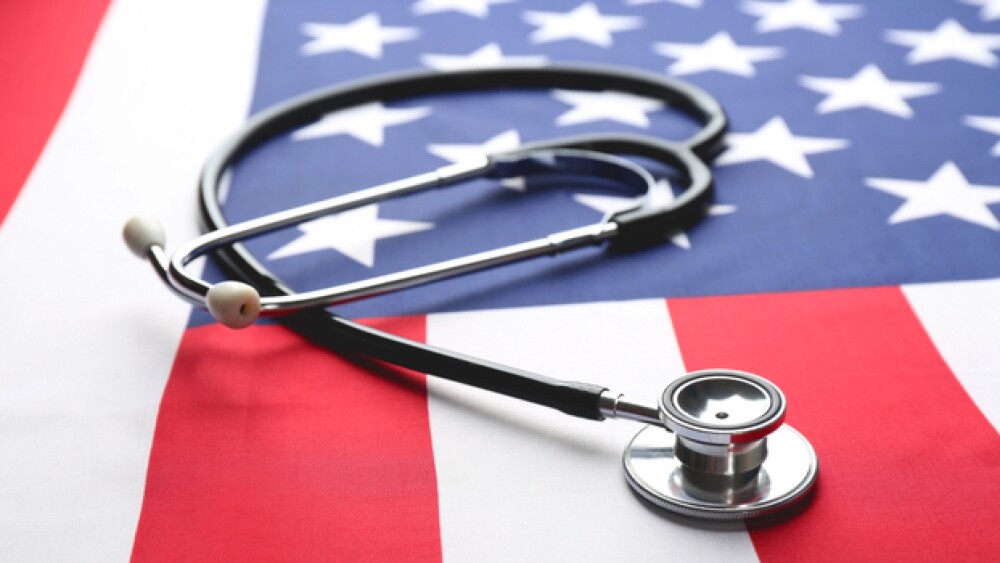As fireworks illuminate the night skies across the United States this weekend in celebration of Independence Day, BioSpace takes a look at some of the highlights of the pharma industry from the first half of 2019 and earlier that provides millions of patients with the independence of health.
As fireworks illuminate the night skies across the United States this weekend in celebration of Independence Day, BioSpace takes a look at some of the highlights of the pharma industry from the first half of 2019 and earlier that provides millions of patients with the independence of health.
Over the course of the first six months of 2019, there have been numerous success stories in the U.S.-led pharmaceutical industry. From advancements in gene therapy, to closing in on a potential cure for HIV, U.S. researchers have been among the leaders in providing advancements in treatment for a myriad of diseases and allowing patients to enjoy more independent lives. Below is a roundup of efforts in various fields led by U.S.-based companies from the past several months.
Immuno-oncology -- Immuno-oncology has become a key lynchpin in the pipelines of many pharmaceutical companies, with U.S. based Merck and Bristol-Myers Squibb leading the way. So far this year, there have been multiple triumphs in this area, particularly of note are the multiple approvals of Merck’s vaunted checkpoint inhibitor Keytruda. The PD-1 inhibitor has become a cornerstone of Merck’s oncology program and is likely to continue in that role for some time to come. Keytruda recently picked up two new approvals from the FDA and more are expected to come in the near future. With Keytruda, the company has seen activity across 25 different kinds of cancers and the drug is currently part or more than 1,000 different trials. In April, BMS’ checkpoint inhibitor Opdivo, which has also been approved for multiple indications by the U.S. Food and Drug Administration, demonstrated long-term survival in lung cancer. In a pooled analysis of multiple clinical trials, Opdivo showcased strong overall survival benefits in patients. The success of Opdivo helped, in part, lead the way for BMS to make a significant M&A move earlier this year with the $74 billion acquisition of New Jersey-based Celgene. BMS Chief Executive Officer Giovanni Caforio said the acquisition will create “the number one oncology franchise” for both solid and hematologic tumors.
HIV – Last year, Robert Redfield, the new director for the U.S. Centers for Disease Control and Prevention (CDC), predicted the AIDs epidemic can be defeated within the next three to seven years and researchers across the U.S. and the globe have raced to meet that challenge. Merck has been one of the companies leading the charge. Last year, the company won approval for two new HIV treatments, Delstrigo, a once-per-day triple combination treatment, and Pifeltro, a new non-nucleoside reverse transcriptase inhibitor. Merck also has a promising clinical candidate that could be a game-changer in HIV treatment, MK8591, which is seen as a future backbone treatment for HIV due to its efficacy and long half-life that could allow for weekly or even monthly dosing. New research has shown some exciting and promising techniques that could actually lead to a cure for the disease. Researchers at a number of U.S. universities developed a technique that is capable of eliminating replication-competent HIV-1 DNA from the genomes of living animals. The technology uses CRISPR-Cas9 gene editing and a long-acting slow-effective release antiretroviral therapy. The technique has been successful in animal models that mirror the human infection. Before human trials, the researchers plan to test the technique in other species using animal models that are more similar to the human HIV infection.
Gene Therapy -- In December 2017, the U.S. Food and Drug Administration gave the green light to Philadelphia-based Spark Therapeutics for Luxturna (voretigene neparvovec), a gene therapy for a rare, genetic form of blindness. It was the first time the FDA approved a directly administered gene therapy that targets a disease caused by mutations in a specific gene. At the time of the approval, former Commissioner Scott Gottlieb predicted gene therapies would become a mainstay in treating genetic-related diseases. Companies have certainly been aiming to meet that goal. Earlier this year, Illinois-based AveXis, now a subsidiary of Novartis, won approval for its gene therapy Zolgensma for spinal muscular atrophy. Earlier this month, Bay Area-based Encoded Therapeutics secured significant funding to advance next-generation gene therapy treatments that are expected to provide greater cell-type selectivity, increased potency and the ability to modulate the expression of endogenous genes.
Less Expensive Insulin – Approximately 10% of the U.S. population has a type of diabetes. For many patients, the rising cost of insulin has been a significant concern that has led to drug rationing, which can lead to worsening of the condition. As part of a response to that issue, Indianapolis-based Eli Lilly, one of the leading diabetes-focused companies in the world, began to offer its generic version of Humalog at half the price of the branded drug. Because they are the same insulin, pharmacists will be able to substitute Insulin Lispro Injection for Humalog, Eli Lilly said at the time. The company anticipated that patients on Medicare D might benefit the most from the generic alternative.





